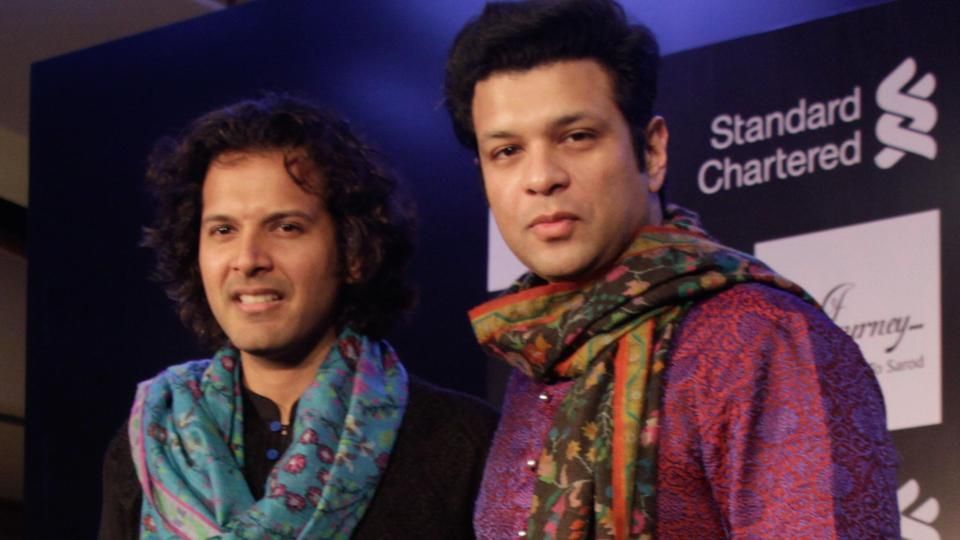Creative differences are not unnatural between brothers, says Ayaan Ali Bangash

Ustad Amjad Ali Khan’s (inset) sons Amaan and Ayaan carved a niche for themselves in the classical music industry at a young age. Talking about their relationship with their father, Ayaan says, “It’s an effortless change from a guru-disciple relationship to a father-son relationship. We have parallel lives”. He adds that their father is happy with what the two have achieved in their careers. “He is comfortable with Ayaan bhai and me because we are also working hard. I don’t think he would be the father that he is to us if he saw that we are not working hard. He is a man who doesn’t expect you to be well-turned-out and speak proper English, but he expects you to not waste time. My understanding of my father is that he likes responsible people,” Amaan explains.
Dedicated to music
The Bangash brothers say they led a rather normal childhood. Ayaan says, “We have been blessed to have had a regular childhood. Even if I was at a movie theatre at the age of 10, I would feel that I have to go back home and rehearse… but not because my father asked me to.”
Ask them if Indian classical music has many takers, and they are quick to draw an analogy. “It’s like golf… it comes after a certain age. However, classical music has a focused audience,” says Amaan. Ayaan adds, “But having said that, in Maharashtra, West Bengal and South India, we have a predominant audience.”
Ayaan says that social media has been of great help for upcoming musicians. “Today, due to social media forums such as YouTube, many sitar, sarod and tabla players are playing the instruments decently well. People have so much content easily available online,” he adds.
Creative differences
Working together as brothers, one would wonder if Amaan and Ayaan have creative differences. To that, Amaan says, “Haan hota hai (Yes, it happens). By the end of it, the aim is that the concert should reach a higher level. Sometimes, I am at fault, I tell him, nahi galat kiya (no, you are wrong), but when I think again later, I think chalo accha hi kiya hoga (okay, he must have done something right)… because we are not trying to overdo each other. Sometimes, on stage, he just changes the pattern or I change the pattern, and both of our moods get spoilt, but that’s just a moment, and then we catch up. In the next 30 seconds, we are back to normal.”
Listen to their latest album here:
Ayaan explains that while working together, they try to create a “bouquet of flowers” and differences are not unnatural. “Our natures are extremely different, but when we are on the stage, we know each other’s minds, because we are brothers,” says Ayaan.






